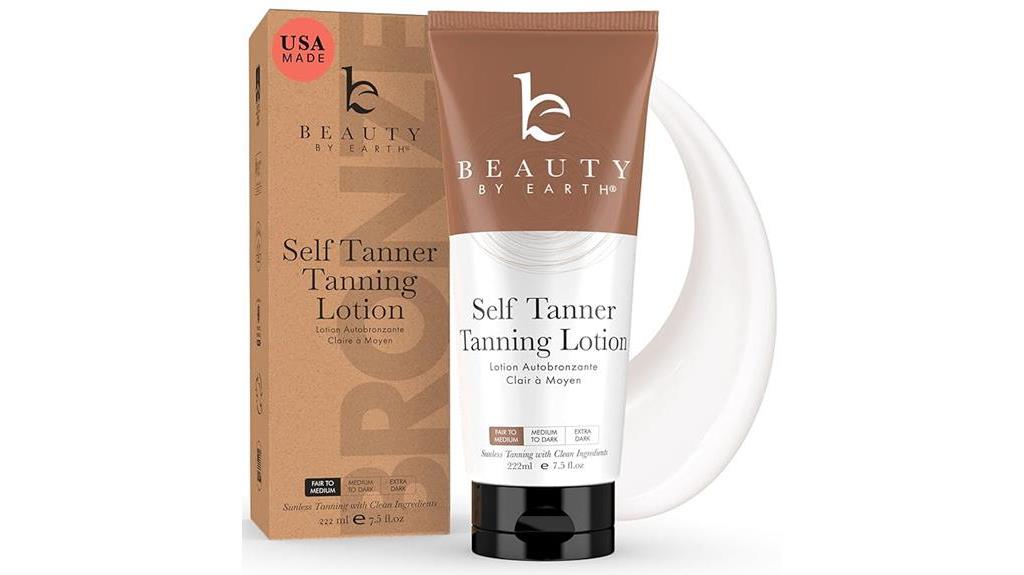Mother's Wellbeing
Overcoming Communication Barriers: Key Tactics for Success
Discover effective strategies for overcoming communication barriers and enhance your interpersonal and professional interactions for success.

Have you ever felt like no one was listening to you? Or dealt with the hassle of being misunderstood? I know I’ve been there.
Communication shapes every part of our lives. It can bring us together or keep us apart. It plays a key role in our relationships, work, and daily tasks.
That’s why it’s key to grasp why good communication matters. And why learning to get past common hurdles is vital. It’s not just about talking, but making a true connection. You want to share your ideas and feelings in a way that clicks with others.
This article will cover why good communication is a must. We’ll talk about six main ways to boost your talking and listening skills. Plus, we’ll look into what stops us from communicating well. With the right tools, we can overcome these obstacles. This will help us do better in all areas of our lives.
Key Takeaways:
- Good communication is key to success in both personal and work life.
- Knowing about communication barriers is the first step to getting past them.
- Six main strategies can make our ability to communicate much better.
- Barriers to communication can block understanding and lead to disagreements.
- To get over communication barriers, we need helpful tactics and to always aim to improve.
Importance of Effective Communication
Effective communication is key in many areas of life. It helps in keeping relationships strong, doing well at work, and getting daily tasks done. Being good at communicating brings many benefits to our lives.
Building trust is one main benefit of communicating well. When we talk clearly and truthfully, it makes others trust us. This trust is crucial for deep and lasting relationships at home and work. It leads to better understanding and stronger bonds.
Also, being good at communicating is vital for solving problems. It makes it easier to spot issues and find solutions. People can share ideas and work together better. Good communication helps us face challenges and reach our goals.
Clear, concise communication also boosts productivity and efficiency. It helps things run smoothly, reduces confusion, and avoids delays. Whether working alone, with a team, or in a large group, being clear and direct makes everything more productive.
Moreover, effective communication grows empathy and understanding. It helps us bond with others by listening and sharing openly. We learn about different lives and viewpoints. This makes for a kinder, more welcoming world.
Improving communication also helps us grow personally. We learn from feedback and gain new insights. By welcoming constructive criticism, we sharpen our skills and expand our knowledge. This makes us better communicators over time.
In conclusion, good communication is the key to success in many areas. It strengthens connections, solves problems, increases productivity, builds empathy, and helps personal development. By focusing on improving how we communicate, we open doors to countless opportunities.
Six Communication Strategies for Improvement
To boost communication skills, people can use six effective strategies. These techniques help overcome barriers. They include active listening, strong interpersonal skills, better internal communications, seeking feedback, being honest and approachable, and communicating promptly.
Active Listening
Active listening is crucial for good communication. It means paying full attention, understanding, and reacting to what the other person says. By avoiding distractions and focussing, I show I really care about their words. This builds trust, mutual understanding, and strengthens our connection.
Interpersonal Skills
Having great interpersonal skills is key to communicating well. These skills cover empathy, understanding emotions, solving conflicts, and being assertive. With these skills, I can deal with various personalities and share my views clearly. This opens up effective and open communication.
Internal Communications
Effective internal communication is vital within any organization. By setting up clear communication channels, using teamwork tools, and promoting openness, I make sure information flows well. This way, everyone in the team, departments, and with stakeholders stays informed, boosting our communication.
Encouraging Feedback
Feedback is essential for communication improvement. Seeking and welcoming feedback offers insights into how I can communicate better. It helps me see what I’m missing, tackle weaknesses, and adjust my way of communication. This helps me connect better with everyone.
Honesty and Approachability
Being honest and easy to approach is important for trust and credibility. Expressing myself truthfully, while being mindful of others’ feelings, encourages open discussions. This creates a trusting environment where everyone feels safe to share their ideas and issues.
Timeliness in Communication
Being timely in communication is very important. Quickly replying to emails, messages, and requests shows I respect others’ time. It shows I’m committed to clear and efficient communication. By staying prompt, I avoid confusion and make sure information is shared at the right time.

Incorporating these six strategies into my day-to-day interactions, I can enhance my communication. Employing active listening, interpersonal prowess, solid internal communications, feedback, honesty, and punctuality is foundational. Together, they ensure successful communication in all areas of life.
Understanding Communication Barriers
Communication has barriers that can slow down or block messages. These hurdles can cause confusion and misunderstanding. It’s key to spot and clear these barriers for smooth communication.
There are different communication barriers we might face. Knowing them lets us find ways to deal with them. Here are ten common ones:
- Physical Barriers: Things like distance, noise, and the place you’re in can block messages.
- Emotional Barriers: Feelings such as anger or stress can stop someone from getting messages right.
- Language Barriers: Not speaking the same language can cause misunderstandings.
- Cultural Barriers: Different backgrounds can affect how we talk and understand each other.
- Gender Barriers: Males and females may have different ways of communicating, which can lead to confusion.
- Perceptual Barriers: People might see or hear things differently, which can cause messages to get mixed up.
- Technological Barriers: Problems with tech or not knowing how to use it can stop effective communication.
- Organizational Barriers: Strict rules or unclear instructions in a group can make communication hard.
- Interpersonal Barriers: Issues between people, like not trusting each other, can block open talks.
- Psychological Barriers: Our biases or assumptions can twist the meaning of messages.
To fix these issues, we must identify the barriers we’re facing. Using empathy, listening, and good talking habits helps tear these walls down. This leads to better teamwork and connections.

Learning about communication barriers is vital for better skills. Overcoming them needs patience and the willingness to learn from others. By working on these issues, we can talk better and build a united and understanding community.
Strategies to Overcome Communication Barriers
Communication barriers can make it hard to get your message across. But with the right strategies, you can clear these hurdles. Below, find tips to help you communicate better and succeed:
- Stay calm: A calm approach helps in tough conversations. Breathe deep, keep a positive outlook, and be patient.
- Conduct research: Know your stuff before you talk, especially with unfamiliar topics. Knowing your subject and the cultural context helps prevent mix-ups.
- Find new locations: Sometimes, a different setting can help. Choose a neutral, comfy place that encourages open talks and makes everyone at ease.
- Gain experience: Learning from diverse interactions is key. Seek out varied conversations to improve how you adapt your communication to different settings.
- Continuous learning and improvement: View communication as an ongoing journey. Learn new ways to communicate, attend workshops, and get feedback to better yourself.
Overcoming communication barriers requires effort and flexibility. Stay calm, prepare well, try new places, gain experience, and always aim to get better. This way, you’ll communicate more effectively and meaningfully.

Using these strategies boosts your ability to get past communication barriers. This leads to better relationships, teamwork, conflict resolution, and success in life.
Communication Barriers in the Workplace
Having good communication is key in the workplace. It helps with productivity and teamwork. But, sometimes, things block good communication. Solving these problems is important for a better work space.
Emotional barriers can make communication hard. Feelings like anger or fear can mess up how we understand each other. Different perceptions also cause issues. This happens when people see things differently because of their own views or past.
“Miscommunication is a common cause of workplace conflicts, which can arise from emotional barriers and differing perceptions.”
Cultural barriers add to the challenge in a workplace with people from various backgrounds. Differences in language, body language, and work methods can block communication. Knowing and respecting these differences is key to better communication.
Dealing with workplace communication barriers means using good strategies. Being open and honest, listening well, and understanding others are important. It also helps to let people give feedback and ask questions. This makes them feel okay sharing their thoughts.
| Tactics for Overcoming Communication Barriers in the Workplace |
|---|
| 1. Foster a culture of open communication |
| 2. Practice active listening |
| 3. Encourage feedback and clarification |
| 4. Recognize and respect cultural differences |
| 5. Provide training and support for effective communication |
| 6. Emphasize the importance of empathy and understanding |
Using these methods, companies can make a workplace where everyone communicates better. This helps people get past barriers and work together well.

The Power of Effective Communication
Effective communication leads to both personal and work success. It lets people bond with each other, build strong ties, and reach their objectives. When done right, it can change every part of our lives.
One big plus of good communication is its power to influence others. It can persuade people or motivate a team to act. Good communication skills let you share your ideas clearly and strongly.
Building stronger relationships is another benefit. Talking openly and listening well builds trust and understanding. This helps us get closer to friends, family, and co-workers, making our interactions more rewarding.
“Communication is the lifeline of any relationship. It bridges gaps, resolves conflicts, and nourishes bonds.”
Good communication also helps with leadership. A leader who speaks clearly and listens can inspire their team. By using effective communication, leaders can motivate others to do their best.
For career success, being able to communicate is key. It’s crucial for networking, sharing ideas, and making a good impression in interviews. Good communicators are sought after by employers since they work well with others, solve issues, and help the company grow.
It’s important to get past communication barriers. These can be things like language differences, cultural misunderstandings, and tech issues. Finding ways to overcome these can boost your communication skills and unlock your full potential.
Let’s look at Jane Peterson, a famous public speaker, for inspiration. With amazing communication skills, she has encouraged many to follow their dreams and face challenges. Her knack for connecting with people, telling engaging stories, and giving memorable talks makes her a star in effective communication.
Discover the power of effective communication and utilize its potential to change your life. Overcome obstacles, build stronger bonds, and open up a world of possibilities.

The Role of Communication in Career Success
Having strong communication skills is key to doing well in your career. Being able to talk and write well helps in networking, giving presentations, leading, and building your personal brand. By getting better at communicating and dealing with challenges, you can improve your job chances and find new paths to success.
Networking
Networking is a big part of moving up in your career. Making professional contacts in your field can lead to job offers, partnerships, and advice. To network well, you need to be able to speak clearly and with confidence. This skill lets you share what you can do, what you want to achieve, and make a strong, positive impact on others.
Presentations
Presenting your ideas well is often needed in many jobs. Whether you’re talking about a project, pitching ideas, or speaking at events, it’s important to hold your audience’s attention. Improving how you present, including your speech, body language, and use of visuals, helps get your point across and get noticed for your knowledge.
“Communication is the fuel that drives teamwork and collaboration, leading to successful project outcomes.”
Leadership
Good communication is crucial for leaders. Being able to clearly share your vision and expectations brings unity and purpose to your team. Listening well and being understanding helps gain trust, boosts teamwork, and motivates others to do their best. Great leaders know that the right words can lead and inspire a team towards success.
Personal Brand Development
How you communicate shapes your personal brand. Showing yourself as confident and reliable helps build your reputation and opens new doors. Both written (like in emails and social media) and spoken (in meetings and interviews) communication showcase your skills and values. This makes you stand out from others.
Getting past communication hurdles is essential for doing well in your career. Keep working on your communication skills and ask for feedback. By adapting to different ways of communicating, you can face challenges and create strong work relationships. Remember, being good at communicating is a great tool that can take your career to the next level.

Summary
Good communication skills are a must for career success. It matters in networking, giving presentations, leading, and building your brand. By getting better at communicating and overcoming obstacles, you open up new possibilities, make strong connections, and push your career ahead.
Breaking Down Walls: Top Communication Barriers and How to Tackle Them
Ineffective communication may result from several barriers. These barriers stop us from understanding each other well. We will look at common communication hurdles and how to get past them. Using these tips, we can talk better and connect more with others.
Language and Cultural Differences
Language and cultural gaps can mess up communication. The wrong words or signs can cause mix-ups and tension. To tackle these issues:
- Be mindful of language proficiency: Talk slowly, use easy words, and ask for explanations if confused.
- Adapt to cultural norms: Learn about others’ cultures and communication ways. Show respect and change your approach as needed.
- Use visual aids: Use pictures, charts, or actions to help get your message across and overcome language or cultural blocks.
Technological Challenges
Today, technology can both help and hinder our talks. Problems like bad connections or misunderstood texts can make things hard. To beat these tech troubles:
- Choose appropriate communication tools: Pick platforms that support clear talks. Make sure everyone’s okay with the tools used.
- Communicate expectations: Set rules for how and when to reply online. Decide which digital tools are best.
- Practice active listening: Focus hard on what the other person is saying. Pay attention to tone and feelings to avoid misunderstandings.
Emotional Barriers
Strong emotions can make it hard to talk well. When we’re upset, it’s tough to say what we mean or understand others. To move past emotional walls:
- Practice emotional intelligence: Be aware of and control your feelings when talking. Notice others’ feelings and respond with care.
- Encourage open dialogue: Make a space where everyone can talk freely and without judgment. This helps people feel safe to share their thoughts.
- Offer constructive feedback: Give feedback in a helpful way. Talk about the problem, not the person. This reduces emotional blocks and aids understanding.
Perceptual Barriers
Perceptual barriers pop up when we all see things differently. This can make us misunderstand each other and disagree. To get over perceptual hurdles:
- Practice active listening: Listen carefully to get the real message. Try hard to understand the other person’s view.
- Seek clarification: If viewpoints don’t match, ask questions to clear things up. This helps avoid wrong guesses.
- Be open-minded: Know your own biases and work to be more accepting of other opinions and views.
“Effective communication isn’t just about talking; it’s about truly understanding each other. By tackling these communication barriers, we create deeper connections and achieve more.”

By working on getting past communication blocks, we make our relationships and teamwork better. The advice given here lays a good foundation for facing these challenges. Remember, being a great communicator is a skill we can hone through effort and persistence.
Conclusion
Effective communication is key to success in our lives and work. This article showed why beating communication barriers matters. It gave ways to get better at this.
Good communication helps us build strong relationships and solve problems well. It helps us reach our dreams. We should listen well, improve how we interact, and ask for feedback. This way, we can get past barriers and work better together.
It’s also important to know about common barriers like language, culture differences, and tech problems. If we stay calm, do our homework, and keep getting better, we can beat these challenges. This improves our communication overall.
In the end, becoming better at communicating is an ongoing journey. With the right plans and attitude, we can become great at it. This leads to wins in our personal and work lives. By using these tips, we can face communication barriers, use communication well, and do great in what we aim for.
FAQ
What is the importance of effective communication?
What are the six communication strategies for improvement?
What are communication barriers?
What are some strategies to overcome communication barriers?
How can communication barriers impact the workplace?
What is the power of effective communication?
How does communication affect career success?
What are some common communication barriers and how can they be tackled?
How can individuals overcome communication barriers?
How can I summarize the importance of overcoming communication barriers?
Source Links
- https://www.hihello.com/blog/strategies-to-overcome-communication-barriers-and-communicate-effectively
- https://www.lifecoachsmitadjain.com/post/9-ways-to-overcome-barriers-to-effective-communication-and-achieve-success
- https://www.fearless.online/blog/top-tips-for-overcoming-communication-barriers
With a rich background in writing and a keen interest in child development, she specializes in creating insightful, compassionate content that speaks directly to parents’ concerns and aspirations. Margaret believes in the power of shared experiences to bring comfort and confidence to parents everywhere.
Nutrition and Fitness
Unlock Your Golden Glow: Top 5 Tanning Products for 2024

As we embrace the sun-kissed trends of 2024, achieving that perfect tan has never been more exciting. Whether you’re a seasoned tanner or just starting your bronze journey, choosing the right products is key to unlocking your golden glow. Let’s dive into the best tanning products that will have you radiating confidence all year round!
Before we explore Tanning Trends’ top picks, let’s consider what makes a great tanning product:
Key Factors for Choosing Tanning Products
- 75% of people have sensitive skin, requiring compatible tanning products
- SPF 30+ is recommended for adequate sun protection
- 80% consider moisturizing properties when choosing tanning products
- 60% prefer easy-to-apply formulas
- 90% want a natural-looking tan from their tanning products
1. Carroten Intensive Tanning Gel SPF0
Kick-start your tanning journey with the Carroten Intensive Tanning Gel SPF0. This powerhouse delivers a deep, sun-kissed glow within just a couple of hours of sun exposure.


Key features:
- Quick absorption for immediate dressing
- Antioxidant vitamins A & E for skin nourishment
- Visible results within 20 minutes
- Lightweight, non-greasy formula
Caution: While this product is fantastic for quick results, those with fair skin should be extra cautious due to the lack of SPF. Always prioritize sun protection when using SPF0 products.
2. Sun Bum SPF 15 Moisturizing Tanning Oil
For those who want to tan responsibly, the Sun Bum SPF 15 Moisturizing Tanning Oil is a perfect choice. This vegan, reef-friendly formula keeps your skin silky smooth while you work on your tan.

Why we love it:
- Nourishing ingredients like Aloe Vera, Coconut, and Argan oil
- Easy spray application
- Tropical scent for beach vibes
- Water-resistant formula
Remember, while SPF 15 offers some protection, it’s essential to reapply frequently and avoid prolonged sun exposure for optimal skin health.
3. Jergens Natural Glow +FIRMING Self Tanner
For those who prefer a sunless option, the Jergens Natural Glow +FIRMING Self Tanner is a game-changer. This gradual tanning lotion is perfect for fair to medium skin tones.

Standout features:
- Streak-free, even application
- Color develops in about 3 days
- Contains collagen and elastin to reduce cellulite appearance
- Hydrates skin while tanning
This product is part of the Jergens Natural Glow Collection, offering various options for different skin tones and preferences.
4. Natural and Organic Self-Tanner
For the eco-conscious tanner, this Natural and Organic Self-Tanner is a top pick. It’s perfect for those who prioritize clean ingredients in their beauty routine.

What sets it apart:
- Non-toxic, natural, and organic ingredients
- Available in multiple formulas (mousse, spray, drops)
- Suitable for face and body application
- Streak-free, natural-looking tan without orange hue
- Long-lasting results
This product is a fantastic option for those exploring Natural & Organic Self-Tanners.
5. Tan Physics Sunless Tanner
Last but not least, the Tan Physics Sunless Tanner offers a natural-looking tan without sun damage. It’s a versatile option suitable for both beginners and experienced tanners.

Why it stands out:
- Hydrating formula with Argan Oil and Coconut Oil
- Acts as a moisturizer
- No unpleasant smell
- Provides even, natural-looking color
This product is part of Tanning Trends’ Vetted category, ensuring its quality and effectiveness.
Conclusion: Your Path to Golden Perfection
As we’ve explored the best tanning products of 2024, remember that the perfect tan is all about finding what works best for your skin and lifestyle. Whether you prefer sun-activated tanning gels, protective oils, or self-tanning lotions, there’s a product out there for everyone.
Always prioritize your skin’s health by following proper application techniques and sun protection measures. For more tips on maintaining your tan and overall skin health, check out Tanning Trends’ Lifestyle Tips.
Embrace your journey to a sun-kissed glow, and don’t be afraid to experiment with different products to find your perfect match. Here’s to a radiant, confident you in 2024!
Stay Hydrated
Drink 8-10 glasses of water daily
Exfoliate Regularly
1-2 times a week to remove dead skin cells
Use Tan-Extending Products
Products with antioxidants like vitamin C and E
Protect Your Skin with SPF
Use broad-spectrum SPF 30+ daily
Pamela is the voice behind our vibrant community, fostering connections and conversations among parents. Her expertise in community engagement and personal experiences as a parent fuel her passion for creating a supportive space for all. Pamela believes that community is crucial for navigating the complexities of parenting, offering a place for sharing, learning, and growing together.
Finding Time for Self
Self-Care Strategies: Finding Time for Wellbeing

Do you ever feel like life is rushing by too quickly? That there never seems to be sufficient time for yourself amidst the busyness of work, family, and obligations? Trust me, you’re not alone. We all have moments where we put our own needs on the back burner in order to take care of others or meet deadlines. But here’s the reality: self-care is not a luxury. It is a fundamental necessity for our overall wellbeing.
When we prioritize self-care, we’re not selfish; we’re making a conscious choice to invest in our physical and emotional health. Self-care is about intentionally engaging in activities that promote healthy functioning, reduce stress, and enhance our overall quality of life. It’s about recognizing that we deserve time and attention just as much as anyone else.
But finding time for self-care can be challenging, especially in a world that constantly demands our attention. That’s why it’s important to develop personalized strategies and create a self-care plan that works for us. By carving out dedicated moments for self-care, we can recharge, rejuvenate, and become more resilient in the face of life’s challenges.
In this article, we’ll explore the importance of self-care, different types of self-care activities, and how to create a customized self-care plan that fits your unique needs. We’ll also provide practical tips for incorporating self-care into your daily life and offer guidance on seeking professional help when needed.
Remember, self-care is not a selfish act; it’s an act of self-love and self-preservation. It’s about finding the balance between taking care of others and taking care of ourselves. So, let’s embark on this journey together and discover the power of self-care in enhancing our overall wellbeing.
Key Takeaways:
- Self-care is not a luxury but a necessity for our physical and emotional wellbeing.
- Developing personalized strategies and creating a self-care plan is crucial in finding time for self-care.
- By prioritizing self-care, we can recharge and become more resilient.
- There are different types of self-care activities that address various dimensions of our wellbeing.
- Incorporating self-care into our daily lives is essential for maintaining balance and reducing stress.
Understanding the Importance of Self-Care
Self-care is a multi-dimensional concept that encompasses various aspects of our well-being. It goes beyond bubble baths and spa days; it is a fundamental practice that promotes physical and mental health, as well as stress relief. When we prioritize self-care, we invest in our overall well-being, leading to a happier and healthier life.
Self-care involves taking care of our physical, social, mental, spiritual, emotional, recreational, and environmental well-being. It is a holistic approach that ensures we are nourishing each aspect of ourselves. By engaging in self-care practices, we can prevent disease, promote health, and effectively cope with illness.
Research has shown that specific forms of self-care have significant benefits for our overall wellness. Regular physical activity, for example, has been linked to increased lifespan and improved physical health. Finding purpose in life provides a sense of fulfillment and can contribute to better mental health. Additionally, prioritizing quality sleep allows our bodies and minds to recharge, reducing the risk of various health issues.
“Self-care is giving the world the best of you, instead of what’s left of you.” – Katie Reed
When we neglect self-care, we are more susceptible to stress, burnout, and a decline in our well-being. Incorporating self-care into our daily lives is essential for managing stress and maintaining a healthy balance. By taking small steps and prioritizing self-care activities, even in our busy schedules, we can experience the positive impact it has on our mental and physical health.
To visually represent the importance of self-care, imagine a table that highlights the dimensions of self-care, its benefits, and specific examples:
| Dimensions of Self-Care | Benefits | Examples |
|---|---|---|
| Physical | Enhanced physical health and vitality | Regular exercise, balanced diet, adequate sleep |
| Social | Stronger social connections and support systems | Spending time with loved ones, nurturing relationships |
| Mental | Improved cognitive function and emotional well-being | Mindfulness meditation, engaging in hobbies |
| Spiritual | Increased sense of meaning and purpose | Practicing gratitude, connecting with nature |
| Emotional | Better emotional regulation and resilience | Journaling, therapy, self-reflection |
| Recreational | Enjoyment and stress relief | Pursuing hobbies, engaging in leisure activities |
| Environmental | Promotion of mental and physical well-being through a nurturing environment | Creating a calming living space, spending time in nature |

Understanding the importance of self-care is the first step towards incorporating it into our lives. By recognizing the benefits it offers in terms of physical and mental health, as well as stress relief, we can prioritize self-care as an essential practice for our overall well-being.
Types of Self-Care
When it comes to self-care, there are various types of activities that can contribute to your overall well-being. These different forms of self-care focus on different aspects of your health and happiness, allowing you to nurture your mind, body, and relationships. Let’s explore some key types of self-care and how they can benefit you.
Sleep
One crucial aspect of self-care is ensuring you get sufficient sleep. Quality sleep is essential for your physical and mental health. It allows your body to rest, repair, and rejuvenate, promoting optimal cognitive function and emotional well-being. Prioritizing sleep can improve your mood, enhance concentration, and reduce the risk of certain health conditions.
Physical Activity
Engaging in regular physical activity is another vital form of self-care. Exercise not only strengthens your body but also releases endorphins, making you feel happier and more energized. It helps to reduce stress, boost your immune system, and improve your overall health. Whether it’s a brisk walk, a workout class, or a sport you enjoy, finding ways to move your body is essential for self-care.
Social Connections
Nurturing healthy social connections is an important aspect of self-care. Building and maintaining relationships with others helps to fulfill our innate need for connection and belonging. Strong social connections can provide support, encouragement, and a sense of community. Whether it’s spending time with loved ones, joining social groups, or participating in activities that involve interaction with others, cultivating meaningful relationships is crucial for your well-being.
| Types of Self-Care | Benefits |
|---|---|
| Sleep | Improves cognitive function, enhances emotional well-being, reduces the risk of certain health conditions |
| Physical Activity | Strengthens the body, releases endorphins, reduces stress, boosts the immune system |
| Social Connections | Provides support, encouragement, and a sense of community |
Additionally, self-care involves engaging in activities that bring joy and fulfillment. This can include pursuing hobbies, practicing mindfulness, engaging in creative outlets, or simply taking time for yourself to relax and recharge. What matters most is identifying what activities make you feel happy, nurtured, and fulfilled.
Remember, self-care is not a one-size-fits-all approach. Each person has unique needs and challenges. It’s important to customize your self-care plan to address your individual requirements. By prioritizing sleep, engaging in regular physical activity, nurturing social connections, and finding activities that bring you joy, you can create a self-care routine that supports your overall well-being.
Now that we’ve explored the different types of self-care, let’s move on to the next section, where we’ll discuss how to create your personalized self-care plan.
Creating Your Self-Care Plan
Creating a personalized self-care plan is crucial for nurturing our well-being amidst the demands of daily life. It involves assessing different areas of our lives, identifying stressors, and developing strategies to address them. By prioritizing and scheduling time for self-care activities, we can ensure that we make our well-being a top priority, even when life feels busy and overwhelming.
Assessing our needs is an essential first step in creating a self-care plan. We can start by reflecting on the different areas of our lives, such as physical, emotional, social, and spiritual well-being. What aspects require our attention and nurturing? By identifying the specific areas that need improvement, we can focus on developing strategies to address those needs.
Setting boundaries is another important aspect of our self-care plan. Boundaries allow us to protect our time, energy, and emotional well-being. We need to define what is acceptable and what is not, both in our relationships and our commitments. By setting boundaries, we create space for ourselves and ensure that our self-care activities are not compromised.
It’s important to remember that self-care doesn’t have to be overwhelming. Taking small steps is key to building sustainable habits. We can start by incorporating one or two self-care activities into our daily routine. These activities can be as simple as taking a walk in nature, practicing mindfulness, or dedicating time to engage in a hobby we love. By starting small, we can gradually expand our self-care practices and make them a natural part of our lives.
Remember, creating a self-care plan is a dynamic process. Our needs and circumstances change over time, so it’s essential to regularly reassess our plan and make adjustments accordingly. By staying connected with ourselves and our evolving needs, we can ensure that our self-care remains aligned and supportive of our overall well-being.

Tips for Practicing Self-Care
When it comes to self-care, there are various strategies you can incorporate into your daily routine to promote mental well-being, reduce stress, and enhance overall resilience. Here are some tips that can help you prioritize your self-care:
Prioritize Quality Sleep
Ensure that you’re getting enough sleep each night. Quality sleep plays a vital role in rejuvenating the body and mind, promoting cognitive function, and enhancing overall well-being. Establish a consistent sleep schedule and create a calming bedtime routine to optimize your sleep quality.
Practice Mindfulness and Meditation
Engage in mindfulness and meditation practices to cultivate a sense of present moment awareness and reduce stress. Dedicate a few minutes each day to quieting your mind and focusing on your breath. Mindful activities such as yoga or deep breathing exercises can also help promote relaxation.
Engage in Regular Physical Activity
Physical activity is not only crucial for your physical health but also plays a significant role in promoting mental well-being. Incorporate regular exercise into your routine, whether it’s going for a walk, taking a fitness class, or engaging in your favorite sport. Find activities that you enjoy and make them a priority.
Cultivate Healthy Eating Habits
Pay attention to your nutrition and nourish your body with a balanced diet. Opt for whole and nutrient-rich foods that provide energy and support overall health. Incorporate plenty of fruits, vegetables, lean proteins, and whole grains into your meals. Stay hydrated by drinking enough water throughout the day.
Set Boundaries
Setting boundaries is crucial for protecting your time, energy, and overall well-being. Learn to say no to activities or commitments that don’t align with your priorities or values. Practice assertiveness and communicate your boundaries effectively. This will help you maintain a healthy balance in your personal and professional life.
Nurture Relationships
Invest time and effort in building and maintaining meaningful relationships. Surround yourself with people who uplift and support you. Engage in activities with loved ones, whether it’s spending quality time together or having meaningful conversations. Building a strong support system is essential for your overall well-being.
Pursue Enjoyable Activities
Make time for activities that bring you joy and fulfillment. Engage in hobbies, pursue creative outlets, or simply take time for yourself to relax and unwind. Engaging in activities that you enjoy can boost your mood, reduce stress, and enhance your overall sense of well-being.
Practice Gratitude
Cultivate a mindset of gratitude by acknowledging and appreciating the positive aspects of your life. Take time each day to reflect on the things you’re grateful for. Maintain a gratitude journal or simply express gratitude in your thoughts or conversations. Practicing gratitude can help shift your focus to the positive and promote a sense of contentment.
Seek Professional Support When Needed
If you’re struggling with your mental health or finding it challenging to practice self-care, don’t hesitate to seek professional support. Mental health professionals can provide guidance, therapy, and resources tailored to your specific needs. Remember, reaching out for help is a sign of strength, and there are resources available to support you on your journey.
By incorporating these self-care strategies into your daily life, you can prioritize your well-being and create a healthier, happier, and more balanced lifestyle.
Prioritizing Mental Health
Taking care of your mental health is crucial for overall well-being, and self-care plays a key role in maintaining and supporting mental health. Prioritizing mental health through self-care practices is essential to cultivate resilience, reduce stress, and promote a positive mindset. It is also important to seek professional help when needed to ensure comprehensive support.
There are various self-care strategies that can support mental health:
- Quality Sleep: Prioritize sufficient and restful sleep to allow your mind and body to rejuvenate and recharge.
- Mindfulness: Practice mindfulness and meditation to cultivate awareness, reduce stress, and enhance emotional well-being.
- Physical Activity: Engage in regular physical activity to promote the release of endorphins, improve mood, and reduce symptoms of mental illness.
- Cultivating Healthy Eating Habits: Nourish your body with balanced and nutritious meals to support overall well-being and optimize brain function.
- Setting Boundaries: Establish and communicate boundaries to maintain your mental and emotional well-being and avoid overwhelm.
- Connecting with Others: Foster meaningful connections with friends, family, and supportive individuals to combat loneliness and promote a sense of belonging.
- Pursuing Enjoyable Activities: Dedicate time to engage in hobbies, creative outlets, or any activities that bring you joy and fulfillment.
- Practicing Gratitude: Cultivate a gratitude practice by expressing appreciation for the positive aspects of your life to help shift focus and enhance overall well-being.
- Learning to Say No: Develop the ability to prioritize your own needs and say no to excessive commitments or situations that may compromise your mental health.
Remember, self-care is an ongoing process, and it’s important to tailor your self-care strategies to your individual needs and preferences. Be kind to yourself and prioritize your mental health through self-care practices. And if you find yourself needing additional support, do not hesitate to seek professional help for a comprehensive and personalized approach.
“Taking care of your mental health is not selfish, it’s necessary. You can’t pour from an empty cup.” – Unknown
Finding Help and Support
If you’re struggling with mental health challenges, it’s important to seek professional help and support. We understand that navigating the journey towards healing can be overwhelming, but you don’t have to face it alone. Therapists, counselors, and mental health experts can provide valuable guidance tailored to your specific needs and circumstances.
Additionally, there are various resources available to help you find the support you need. Helplines staffed by trained professionals are available 24/7 to provide immediate assistance and a listening ear. These helplines can connect you with the appropriate mental health services in your area.
In our digital age, online platforms have emerged as a convenient avenue to access support and treatment facilities. You can find online counseling services and support groups that offer a safe and confidential space to discuss your concerns and connect with others who may be experiencing similar challenges.
Finding help for mental health is a crucial step towards recovery and well-being. Remember, reaching out for professional support is a sign of strength, and there is no shame in asking for help.

Online Mental Health Resources
- Mental Health America – Offers a vast array of resources, including screening tools, educational materials, and access to support programs.
- National Alliance on Mental Illness (NAMI) – Provides comprehensive information, support groups, and helplines for individuals with mental health conditions and their families.
- Talkspace – An online therapy platform that connects individuals with licensed therapists through text, audio, and video messages.
- BetterHelp – Offers convenient and affordable online counseling with licensed professionals, ensuring accessible mental health support.
“Remember, reaching out for professional support is a sign of strength, and there is no shame in asking for help.”
Incorporating Self-Care into Daily Life
Creating a customized self-care plan and adapting it to your changing needs is essential for maintaining overall well-being and effectively managing stress. By prioritizing self-care activities and integrating them into your daily routine, you can enhance your effectiveness and efficiency in all aspects of life.
When developing a self-care plan, consider your unique needs and preferences. Reflect on the activities and practices that bring you joy, help you relax, and promote overall well-being. Whether it’s practicing mindfulness, engaging in physical activity, or indulging in a hobby, customize your self-care routine to align with what resonates with you.
It’s important to set aside dedicated time for self-care activities each day. Just as you plan meetings or work tasks, prioritize self-care as an essential part of your schedule. This ensures that you have regular opportunities to recharge and rejuvenate.
“Self-care is not selfish. You cannot serve from an empty vessel.” – Eleanor Brownn
Adapting your self-care plan to changing circumstances is crucial. Life is dynamic, and your self-care needs may evolve with time. Regularly reassess your plan to ensure it remains aligned with your current needs and challenges.

| Benefits of Incorporating Self-Care | Ways to Adapt and Prioritize Self-Care |
|---|---|
| 1. Reduces stress and promotes relaxation | 1. Reflect on your changing needs and adjust your self-care activities accordingly |
| 2. Enhances overall well-being and happiness | 2. Set specific times in your daily schedule for self-care activities |
| 3. Increases resilience and coping skills | 3. Remain open to trying new self-care practices as your needs change |
| 4. Improves focus and productivity | 4. Communicate your self-care needs and boundaries with others |
| 5. Boosts energy levels and vitality | 5. Seek support from loved ones or professionals when necessary |
Remember, self-care is not a luxury but a necessity for maintaining a healthy and balanced life. By incorporating self-care into your daily routine and adapting it to your changing needs, you invest in your well-being and cultivate a greater sense of fulfillment.
Conclusion
Self-care is not a luxury; it is a necessary investment in our mental health and overall well-being. By prioritizing self-care through personalized strategies, we can enhance our resilience, reduce stress, and promote a positive outlook on life.
It is essential to incorporate self-care practices into our daily routine and seek professional help when needed. By doing so, we can effectively manage our mental health and enjoy a healthier, happier life.
Remember, self-care is not selfish; it is an act of self-preservation. Taking care of ourselves allows us to show up as our best selves, not only for ourselves but also for those around us. So let’s make self-care a priority and embark on this journey towards improved mental health and overall well-being. Single parents juggle multiple responsibilities, but selfcare tips for single parents are essential. They can incorporate self-care by setting aside time for themselves, seeking support from friends or family, finding small moments of relaxation throughout the day, and prioritizing their mental and physical well-being. Self-care involves purposeful engagement in strategies that promote healthy functioning and enhance overall well-being. It encompasses various dimensions, including physical, social, mental, spiritual, emotional, recreational, and environmental well-being. Self-care is important for maintaining both physical and mental health. It helps prevent burnout, reduces stress, and promotes resilience. By prioritizing self-care, individuals can improve their overall well-being and enjoy a healthier, happier life. Self-care can take various forms, including ensuring sufficient sleep, engaging in regular physical activity, nurturing healthy social connections, and engaging in activities that bring joy and fulfillment. To create a self-care plan, assess different areas of your life, identify stressors, and develop strategies to address them. Prioritize and schedule time for self-care activities, even when life feels busy. Regularly reassess your plan to ensure it remains aligned with your changing needs. Some effective self-care strategies include prioritizing sleep, practicing mindfulness and meditation, engaging in regular physical activity, cultivating healthy eating habits, setting boundaries, nurturing relationships, pursuing enjoyable activities, practicing gratitude, and learning to say no. Self-care plays a crucial role in maintaining and supporting mental health. Prioritizing self-care through practices such as quality sleep, mindfulness, physical activity, and setting boundaries can promote mental well-being, reduce stress, and enhance overall resilience. If you’re struggling with mental health challenges, it’s important to seek professional help and support. Therapists, counselors, and mental health experts can provide valuable guidance tailored to your specific needs. Additionally, resources such as helplines and online platforms can connect you with support and treatment facilities. Incorporating self-care into your daily life is essential for managing stress and maintaining overall well-being. Customize a self-care plan that aligns with your needs and adapts to changing circumstances. Prioritize self-care activities and schedule dedicated time for them to enhance your effectiveness and efficiency in daily life. Self-care is not a luxury but a necessary investment in your mental health and overall well-being. By prioritizing self-care through personalized strategies, individuals can enhance resilience, reduce stress, and promote a positive outlook on life.How can Single Parents Incorporate Self-Care Strategies into Their Busy Schedule?
FAQ
What is self-care?
Why is self-care important?
What are some types of self-care?
How do I create a self-care plan?
What are some tips for practicing self-care?
How does self-care relate to mental health?
Where can I find help and support for mental health?
How can I incorporate self-care into my daily life?
Is self-care a luxury or a necessity?
With a rich background in writing and a keen interest in child development, she specializes in creating insightful, compassionate content that speaks directly to parents’ concerns and aspirations. Margaret believes in the power of shared experiences to bring comfort and confidence to parents everywhere.
Finding Time for Self
Empowering Taking Time for Yourself Quotes

There have been times when I’ve felt like life is flying by at an alarmingly fast speed. Constantly trying to balance various responsibilities and commitments can leave little time for personal relaxation. I’m sure many can relate to this feeling.
In today’s busy world, taking time for yourself is not just a luxury, but a necessity. It is through self-care that we can recharge, rejuvenate, and prioritize our own well-being. It is a reminder that we matter, that our needs deserve attention and love.
When we make ourselves a priority, we invite a sense of balance and fulfillment into our lives. We become better equipped to handle the challenges that come our way and to show up as our best selves for the people and causes that matter most to us.
That’s why I’ve gathered these empowering quotes for you. Each quote is a gentle reminder to take a step back, breathe, and embrace the importance of self-love, self-acceptance, and self-care. Let them serve as inspiration for you to make yourself a priority and to create moments of peace and rejuvenation in your day-to-day life.
The Importance of Self-Care
In our fast-paced and demanding world, it’s easy to overlook the importance of self-care. We often prioritize the needs of others and neglect our own well-being. However, taking care of ourselves is crucial for maintaining a healthy and fulfilling life.
Self-care involves nurturing both our physical and mental health. It means dedicating time to activities that bring us joy, relaxation, and rejuvenation. By prioritizing self-care, we can replenish our energy, reduce stress, and improve our overall well-being.
“Self-care is not selfish. It is an essential act of self-love and self-preservation.” – Alicia Cook
When we neglect self-care, we risk burnout and diminished mental health. It’s like trying to pour from an empty cup – we can’t give our best to others if we haven’t taken care of ourselves first.
Self-care is not a luxury; it’s a necessity. It is a commitment we make to ourselves, acknowledging that our well-being matters. It’s about setting boundaries, saying no when necessary, and prioritizing our own needs.
“Self-care is giving the world the best of you, instead of what’s left of you.” – Katie Reed
By making self-care a priority, we can improve our physical health, enhance our mental and emotional resilience, and foster a more positive outlook on life. It allows us to recharge, rejuvenate, and show up as our best selves in all areas of life.
So, let’s remember the importance of self-care and the positive impact it can have on our well-being. Let’s prioritize ourselves, embrace self-love and self-acceptance, and make self-care an integral part of our lives.
Benefits of Self-Care
| Benefit | Description |
|---|---|
| Reduced stress | Self-care activities help to lower stress levels and promote relaxation. |
| Improved physical health | Taking care of ourselves physically through exercise, proper nutrition, and rest leads to better overall health. |
| Enhanced mental well-being | Self-care fosters mental resilience, reduces anxiety and depression, and promotes positive mental health. |
| Increased productivity | When we take time to recharge and care for ourselves, we are more focused, energized, and productive. |
| Improved relationships | By prioritizing self-care, we are better equipped to give and receive love, leading to healthier relationships. |
| Enhanced self-esteem | Self-care promotes self-love and self-acceptance, leading to improved self-esteem and confidence. |

Remember, self-care is not selfish; it is a necessary act of self-love and self-preservation. Take the time to nurture yourself, prioritize your well-being, and reap the many benefits that self-care can bring.
Self-Love and Acceptance
Loving and accepting ourselves is the cornerstone of self-care. It is a journey of embracing our imperfections, valuing our worth, and nurturing a positive relationship with ourselves. Here are some inspiring quotes about self-love and self-acceptance that remind us of the importance of embracing who we are:
“You yourself, as much as anybody in the entire universe, deserve your love and affection.” – Buddha
“To fall in love with yourself is the first secret to happiness.” – Robert Morley
“Accept yourself, love yourself, and keep moving forward. If you want to fly, you have to give up what weighs you down.” – Roy T. Bennett
These quotes serve as a gentle reminder that self-love and self-acceptance are essential for our well-being. They inspire us to embrace our flaws, celebrate our uniqueness, and prioritize our own happiness. By recognizing our worth and practicing self-love, we create a foundation for self-care that radiates positivity and allows us to flourish.
Benefits of Self-Love and Acceptance
Self-love and acceptance bring numerous benefits to our lives. They foster a sense of peace, confidence, and resilience, empowering us to navigate challenges with grace and compassion. Here are some of the benefits that come from embracing self-love and acceptance:
| Benefits of Self-Love and Acceptance |
|---|
| Enhanced self-esteem and self-worth |
| Improved mental and emotional well-being |
| Greater resilience in the face of adversity |
| Stronger relationships and connections with others |
| Increased self-compassion and kindness |
| Greater authenticity and alignment with our true selves |
These are just a few of the many benefits that come from cultivating self-love and acceptance. By embracing who we are and practicing self-compassion, we can create a nurturing and fulfilling relationship with ourselves, leading to a happier and more fulfilling life.
Finding Balance and Setting Boundaries
Finding balance in life and setting boundaries is crucial for self-care. It allows us to prioritize our needs and protect our well-being in a world that is often overwhelming and demanding. By finding the right balance and setting healthy boundaries, we can maintain a sense of harmony and achieve a healthy work-life balance.
“Finding balance is not about perfection, but rather about making choices that align with our priorities and values.”
“Setting boundaries is an act of self-care. It’s about knowing our limits and communicating them assertively.”
When we establish boundaries, we are able to protect our time, energy, and mental well-being. This empowers us to say no when necessary, to create space for ourselves, and to avoid being overwhelmed by commitments and obligations.
“Boundaries are like fences that define our personal space, safeguarding our peace of mind and allowing us to flourish.”
Setting boundaries also enables us to prioritize self-care without feeling guilty or selfish. It ensures that we have the time and energy to engage in activities that bring us joy, recharge our batteries, and nurture our physical and emotional health.
“Setting boundaries is an act of self-love and self-respect. It shows that we value ourselves enough to protect our well-being.”
By finding balance and setting boundaries, we create a supportive environment that promotes our overall well-being. It allows us to lead happier, healthier lives and achieve long-term success, while still honoring our own needs and desires.
| Benefits of Finding Balance and Setting Boundaries |
|---|
| 1. Reduced stress and anxiety |
| 2. Improved focus and productivity |
| 3. Enhanced physical and mental well-being |
| 4. Strengthened relationships |
| 5. Increased self-esteem and self-confidence |
The Power of Solitude and Alone Time
Taking time to be alone and enjoy solitude is important for self-care. It allows us to disconnect from the noise of the world and reconnect with ourselves, finding inner peace and clarity. Embracing the power of solitude can be a transformative experience, providing us with the opportunity to reflect, recharge, and gain a deeper understanding of ourselves.
In the words of Rumi, “The quieter you become, the more you are able to hear.” Solitude creates space for introspection and self-discovery, enabling us to listen to our inner voices and gain valuable insights. It is during these moments of aloneness that we can truly connect with our desires, dreams, and passions, free from external distractions and influences.
“I find there is a quality to being alone that is incredibly precious. Life rushes back into the void, richer, more vivid, fuller than before.” – Anne Morrow Lindbergh
Alone time is not just about being physically alone; it is also about creating a mental and emotional space for ourselves. It allows us to recharge our energy, reduce stress, and improve our overall well-being. By taking intentional alone time, we prioritize our own needs and cultivate a sense of self-awareness and self-compassion.
As the saying goes, “Solitude is not the absence of company, but the moment when our soul is free to speak to us.” When we embrace solitude, we give ourselves permission to let go of external expectations and judgments, allowing our true selves to shine through. Solitude becomes a sanctuary where we can find solace, creativity, and inspiration.
“I restore myself when I’m alone.” – Marilyn Monroe
Alone time quotes remind us that we don’t always need to seek validation or entertainment from others. We have the power to find fulfillment and joy within ourselves. Whether it’s through meditation, reading a book, going for a walk in nature, or simply enjoying a moment of quiet reflection, these solitary moments can be transformative, nourishing our souls and fostering personal growth.
As we embrace the power of solitude and alone time, let us remember to be gentle with ourselves. It is during these moments of solitude that we can truly honor our thoughts, emotions, and desires. So, let us carve out sacred space in our lives for solitude, knowing that it is a gift we can give ourselves.
Overcoming Stress and Prioritizing Rest
Stress and exhaustion are common challenges that can significantly impact our overall well-being. In our fast-paced lives, it’s crucial to prioritize rest and relaxation to maintain a healthy and balanced lifestyle. Here are some insightful quotes that remind us of the importance of overcoming stress and making rest a priority:
“Rest when you’re weary. Refresh and renew yourself, your body, your mind, your spirit. Then get back to work.” – Ralph Marston
Taking regular breaks and allowing ourselves to rest not only rejuvenates our physical energy but also helps us manage stress more effectively. It gives our minds the opportunity to recharge and restores our focus. By prioritizing rest, we can enhance our productivity and overall well-being.
“The time to relax is when you don’t have time for it.” – Sydney J. Harris
These insightful words from Sydney J. Harris remind us that rest is essential, especially during busy times. Even when we feel overwhelmed with responsibilities, it’s important to carve out moments for relaxation. By consciously prioritizing rest, we can combat the negative effects of stress and maintain a healthy balance in our lives.
Managing stress is another vital aspect of self-care. It requires developing healthy coping mechanisms to navigate life’s challenges without becoming overwhelmed. Here’s a powerful quote that encourages us to overcome stress and prioritize our well-being:
“You can’t calm the storm, so stop trying. What you can do is calm yourself. The storm will pass.” – Timber Hawkeye
This quote by Timber Hawkeye reminds us that while we may not always have control over external circumstances, we have the power to manage our internal responses to stress. By taking the time to calm ourselves and practice self-care, we can navigate through stressful situations with greater resilience and inner peace.
Nurturing Ourselves Through Rest and Relaxation
To truly prioritize rest and relaxation, it’s important to find activities that nourish our minds, bodies, and souls. These can include taking walks in nature, practicing meditation or yoga, engaging in hobbies or creative pursuits, or simply indulging in moments of silence and solitude. Prioritizing rest allows us to replenish our energy and strengthen our overall well-being.
Remember, overcoming stress and making rest a priority is not selfish—it’s an essential act of self-care. By taking care of ourselves, we become better equipped to handle life’s challenges and fulfill our responsibilities. So, let’s embrace these inspiring quotes as reminders to prioritize rest, manage stress effectively, and nurture ourselves on our journey towards a more balanced and fulfilling life.

| Benefits of Overcoming Stress and Prioritizing Rest |
|---|
| 1. Increased productivity |
| 2. Improved mental well-being |
| 3. Enhanced resilience |
| 4. Better physical health |
| 5. Improved focus and concentration |
| 6. Reduced risk of burnout |
| 7. Enhanced creativity |
| 8. Increased happiness and life satisfaction |
Making Yourself a Priority
When it comes to self-care, prioritizing yourself is of utmost importance. Taking the time to nurture and care for your own well-being is not selfish; it’s essential for leading a healthy and fulfilling life. By making yourself a priority, you are better equipped to care for others and make a positive impact in your own life and the lives of those around you.
“You can’t pour from an empty cup.” – Unknown
Putting yourself first allows you to recharge, rejuvenate, and build resilience. It enables you to show up fully, both for yourself and for others. Making self-care a priority means recognizing that your mental, emotional, and physical well-being matter. It means setting boundaries and saying no when necessary, so that you have the time and energy to invest in yourself.
“Self-care is giving the world the best of you, instead of what’s left of you.” – Katie Reed
It’s easy to get caught up in the busyness of life, constantly giving without refueling. But by making yourself a priority, you create space for self-reflection, personal growth, and self-compassion. You learn to listen to your own needs and take action to meet them. You learn to value yourself and treat yourself with kindness and respect.
“You owe yourself the love that you so freely give to other people.” – Unknown

By making self-care a priority, you are investing in your own well-being and happiness. It’s a proactive decision to prioritize your mental, emotional, and physical health. It’s about creating a sustainable lifestyle that allows you to thrive and be the best version of yourself. When you make yourself a priority, you inspire others to do the same.
“Taking care of yourself doesn’t mean me first, it means me too.” – L.R. Knost
Remember, self-care is not a luxury; it’s a necessity. You deserve to prioritize yourself and make your well-being a priority. So, start today. Take the time to nurture your mind, body, and soul. Make self-care a non-negotiable part of your daily routine.
“Self-care is not selfish. You cannot serve from an empty vessel.” – Eleanor Brownn
| Benefits of Making Yourself a Priority: |
|---|
| Improved overall well-being |
| Increase in energy and productivity |
| Enhanced mental and emotional health |
| Greater self-acceptance and self-love |
| Increased resilience and stress management |
| Greater capacity to care for others |
Benefits of Self-Care
Self-care is not just a luxury; it is a vital practice that benefits our overall well-being. By making self-care a priority in our lives, we can experience numerous positive effects that enhance our physical, mental, and emotional health.
Increased Productivity
When we take the time to care for ourselves, we replenish our energy and recharge both our bodies and minds. This rejuvenation leads to increased productivity in every aspect of our lives. By prioritizing self-care, we can approach tasks and challenges with a focused and energized mindset, ultimately achieving more in less time.
Improved Mental Health
Self-care is a powerful tool for managing and improving our mental health. By engaging in activities that bring us joy, relaxation, and peace, we can reduce stress, anxiety, and depression. Taking care of our mental well-being allows us to maintain a healthy perspective, handle challenges effectively, and nurture positive relationships with ourselves and others.
Enhanced Self-Esteem
Practicing self-care is an act of self-love and self-acceptance. By prioritizing our needs and engaging in activities that bring us joy and fulfillment, we cultivate a positive self-image and enhance our self-esteem. When we consistently invest in our own well-being, we develop a deep sense of worthiness and confidence, enabling us to navigate life with greater self-assurance and resilience.
“Self-care is the foundation for personal growth, inner peace, and overall well-being.” – Unknown
A Balanced Lifestyle
By incorporating self-care into our daily routines, we can achieve a more balanced lifestyle. Taking time for ourselves allows us to create a harmonious blend of work, relationships, and personal fulfillment. Striking this balance helps prevent burnout, fosters healthier relationships, and ensures that we have the energy and capacity to give our best to all areas of our lives.
Overall Well-Being
Ultimately, self-care is an investment in our overall well-being. By nourishing our minds, bodies, and spirits, we cultivate a state of holistic wellness. This enables us to thrive in all areas of our lives, experience greater joy and satisfaction, and live a life that aligns with our values and aspirations.
Conclusion
Taking time for yourself and practicing self-care is crucial for leading a balanced and fulfilling life. In today’s fast-paced world, it’s easy to get caught up in our responsibilities and forget to prioritize our own well-being. However, these empowering quotes remind us of the importance of self-care and encourage us to make ourselves a priority.
By incorporating self-care into our daily routines, we can enhance our overall well-being and live happier, healthier lives. It starts with embracing self-love and acceptance, recognizing that we are worthy of taking care of ourselves. Setting boundaries, finding balance, and making time for solitude and rest are all essential aspects of self-care that contribute to our mental and physical well-being.
When we prioritize ourselves and practice self-care, we are better able to show up for others and make a positive impact on the world around us. Self-care is not selfish; it is necessary. It allows us to recharge, rejuvenate, and replenish our energy, enabling us to give our best to both ourselves and others.
In conclusion, let these quotes serve as a reminder to prioritize self-care, embrace self-love and acceptance, and make yourself a priority. By taking the time to care for ourselves, we are investing in our own happiness and well-being, resulting in a more balanced and fulfilling life.
Can Taking Time for Yourself Quotes Help Stay-at-Home Moms with Self-Care?
Taking time for yourself quotes can be a great source of motivation and inspiration for stay-at-home moms. Selfcare tips for moms, when incorporated into daily routines, can help boost their overall well-being and mental health. It’s important for moms to prioritize self-care and find time for themselves amidst their busy schedules.
FAQ
Why is taking time for yourself important?
Taking time for yourself is crucial in today’s busy world. It allows you to recharge, rejuvenate, and prioritize self-care. By making yourself a priority, you can lead a healthier and more fulfilling life.
How does self-care contribute to overall well-being?
Self-care is often neglected in our hectic lives, but it is essential for our well-being. By practicing self-care, we can improve our mental health, increase productivity, and enhance our self-esteem, leading to a more balanced and fulfilling life.
Why is self-love and self-acceptance important?
Loving and accepting oneself is the foundation of self-care. These quotes emphasize the significance of self-love and self-acceptance, reminding us to embrace our imperfections and value ourselves. By practicing self-love and self-acceptance, we can nurture ourselves and prioritize our well-being.
How can setting boundaries contribute to self-care?
Finding balance in life and setting boundaries is crucial for self-care. These quotes inspire us to prioritize our needs and establish healthy boundaries, allowing us to maintain a healthy work-life balance and protect our well-being.
Why is solitude and alone time important for self-care?
Taking time to be alone and enjoy solitude is important for self-care. These quotes encourage us to embrace solitude, disconnect from the noise of the world, and reconnect with ourselves in order to find inner peace and clarity.
How can we overcome stress and prioritize rest in our lives?
Stress and exhaustion can take a toll on our well-being. These quotes remind us to prioritize rest and relaxation, highlighting the importance of taking breaks, managing stress, and nurturing ourselves in order to maintain a healthy and balanced lifestyle.
Why is it important to make yourself a priority?
It is essential to prioritize ourselves and make self-care a priority. These quotes inspire us to put ourselves first, recognizing that by taking care of ourselves, we are better able to care for others and make a positive impact in our lives and the lives of those around us.
What are the benefits of practicing self-care?
Self-care offers numerous benefits for our overall well-being. These quotes highlight the positive effects of self-care, including increased productivity, improved mental health, and enhanced self-esteem, motivating us to prioritize self-care in our daily lives.
How can self-care improve our lives?
Taking time for yourself and practicing self-care is essential for leading a balanced and fulfilling life. These quotes serve as a reminder to prioritize self-care, embrace self-love and acceptance, and make yourself a priority. By incorporating self-care into our daily routines, we can enhance our well-being and live happier, healthier lives.
With a rich background in writing and a keen interest in child development, she specializes in creating insightful, compassionate content that speaks directly to parents’ concerns and aspirations. Margaret believes in the power of shared experiences to bring comfort and confidence to parents everywhere.
-

 Third Trimester2 weeks ago
Third Trimester2 weeks agoManaging Nausea in the Third Trimester: A How-To Guide
-

 Third Trimester1 week ago
Third Trimester1 week agoManaging Nausea During the Third Trimester: A How-To Guide
-

 Third Trimester2 weeks ago
Third Trimester2 weeks agoSafe Third Trimester Exercise Guide for Moms-to-Be
-

 First Trimester3 months ago
First Trimester3 months agoDramamine Use in Pregnancy: First Trimester Guide
-

 Newborn Care3 months ago
Newborn Care3 months agoNewborn Care Basics: A Step-by-Step Guide
-

 Second Trimester3 months ago
Second Trimester3 months ago10 Common Causes of Dizziness in the Second Trimester
-

 Finding Time for Self2 months ago
Finding Time for Self2 months agoSelf-Care Tips for Single Parents | Make Time for You
-

 Finding Time for Self2 months ago
Finding Time for Self2 months agoSelf-Care for Stay-at-Home Moms: Making Time

















